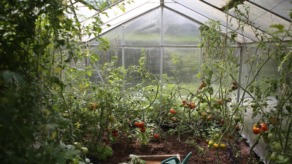How to be a critical thinker

Is it the truth, a half-truth or just fake news? The line between fact and fiction has become blurrier and blurrier. Otje van der Leij looks into ways we can guard ourselves against fallacies presented as facts with critical thinking.
Back in 2010, I stood up and clapped while watching television. On the screen were American comedians and talk-show hosts Jon Stewart and Stephen Colbert organizing the ‘Rally to Restore Sanity and/or Fear’ in Washington D.C., US. More than 200,000 Americans came together to demonstrate their support for the restoration of common sense. They were fed up with populism, the hardening of society, and ridiculous political campaign propaganda.
It was one of the most positive demonstrations I’ve ever seen. Participants were laughing, cheering and waving banners that read things like, ‘I believe in a sanity clause’ and ‘If your beliefs fit on a sign, think more deeply’. It hit the nail on the head: In a time when cheap sound bites, fake news and half-truths are dominating the Internet, critical thinking is becoming more and more important. But how do you become a critical thinker? How do you tell the difference between fact and fiction?







